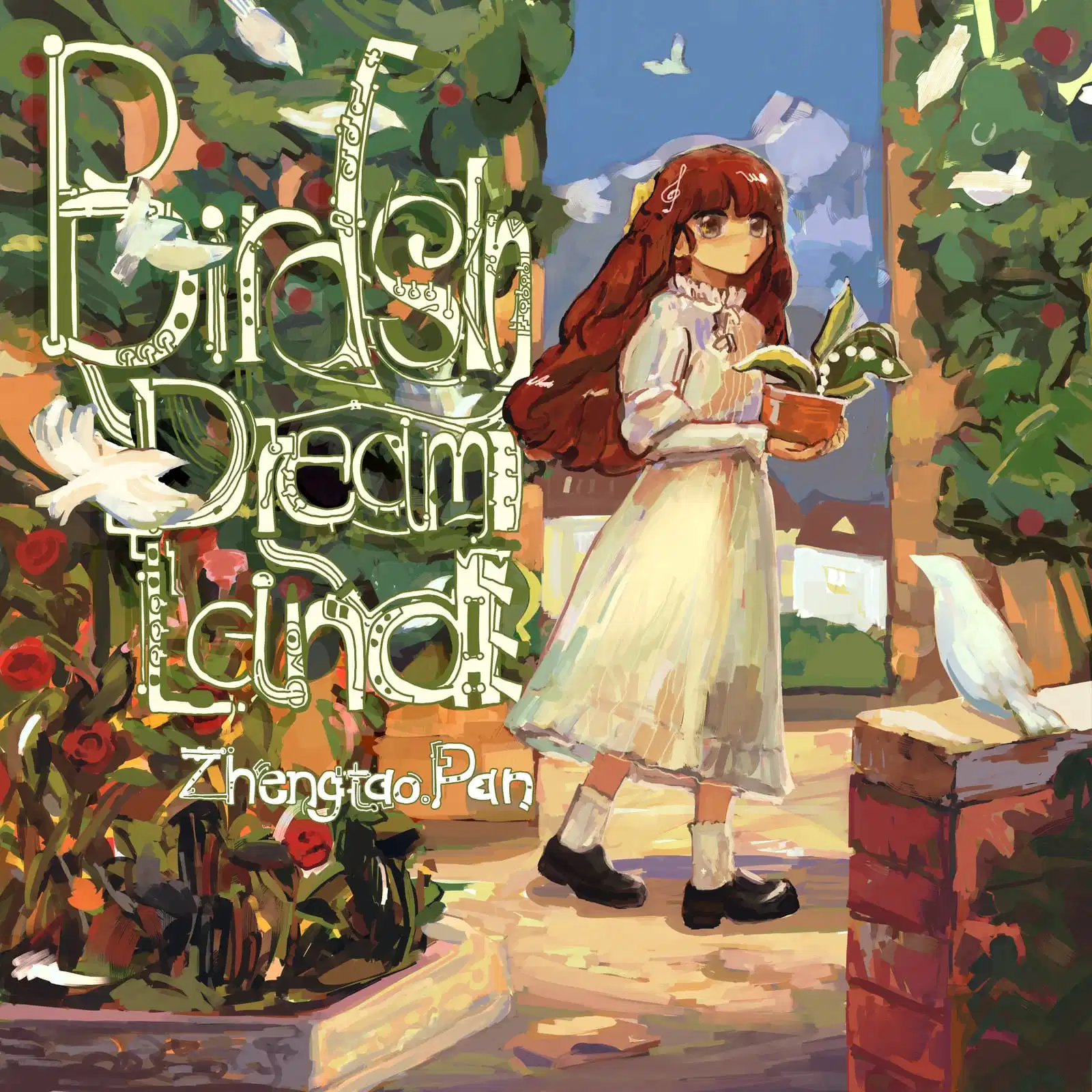Zhengtao Pan: translating nature's conversations into music

The echoes of these melodies could belong to an imaginary world: one where a hero is willing to fight for the love of his life. However, these compositions are far removed from legendary wars; they arise from drifting flights and conversations made with mimicry and sound. In this dreamland, no princesses are waiting to dance the waltz—just some birds singing in the park.

Immersed in a boundless sense of wonder, composer Zhengtao Pan weaves vivid experiences into his soundscapes. Stepping away from the virtual realms where he scores the emotional and aesthetic essence of fantastical video game worlds, Pan draws inspiration from nature’s music. “About two years ago, while studying at Berklee, just hanging around the Charles River, I saw a couple of birds that looked like they were having a conversation or something. I couldn’t understand what they were saying, but they seemed very engaged,” he recalls. As the birds took flight, their dialogue vanished into thin air, only to be reimagined under Pan’s baton on his new EP Birds In Dream Land.
From this fleeting riverside encounter, Zhengtao Pan shaped the music with a rhythmic freedom that mirrors the unpredictable flutter of birds in flight. From the very first notes, the sonic language is irregular and fluid, evoking the way birds move through the air. “I knew it had to have a bird-like instinct. It couldn’t just be me writing a random piece and saying, ‘Oh, this is for the birds of Boston,’” he continues. “I had to emulate or imitate some of their conversations. In each movement, I include some extended technique or gesture to mimic bird sounds.”
To capture this organic vitality, Pan composed six pieces for two unconventional ensembles with a unique goal in mind: to sound as close as possible to the pitches of the birds. These ensembles include a woodwind quintet—featuring piccolo, flute, alto flute, clarinet, and bass clarinet—and a string quartet performed by members of the Budapest Scoring Orchestra and European Recording Orchestra, respectively.
Despite the distance, Zhengtao’s musical vision flows naturally between continents. The title track vividly reflects his roots. “In our culture, we believe that animals that pass away go to a place called Dreamland.” Born and raised in Shanghai, China, Pan weaves East Asian spiritual beliefs throughout the movements. “So, Birds In Dream Land is more like an illusion or a hopeful idea. Since birds have relatively short lives compared to humans, I feel like their time on this planet is limited. I hope that they enjoy every single second of it. That’s why the music sounds a bit melancholic: it reflects that bittersweet feeling.”
The act of interpreting the ephemeral sounds of birds into sheet music transcends traditional learning methods. It’s where curiosity leads an artist to spend hours exploring sound, nuance, and emotion. “I sit at the piano while I compose, but I’m not playing the piano—at least not like a pianist would. I use it more as a tool to discover elements,” Zhengtao explains, reflecting on the process behind the EP. “I usually sit in front of the piano and test out ideas. I have the habit of using just two fingers—one from each hand. That helps me focus on creating counterpoint or color lines, or shaping a polyphonic texture. It’s not about playing chords like a traditional pianist.”
Writing for two distinct chamber groups requires a different mindset. “If you try to ‘play’ the parts on the piano, especially for these kinds of instruments, it’s hard to do it continuously or smoothly,” he adds.
My favorite bird, the Toki from Japan, with its elegant beauty, reminds me of a well-designed object: simple, unassuming, yet inherently captivating. It doesn’t need to show off; its grace speaks for itself.
At the heart of his work lies a reverence for musical moments that linger—melodies and rhythms that resonate long after the concert ends. “For me, the most important aspect of music is melody—or at least something memorable,” he shares. “After just one listen, there should be a fragment or moment that sticks with you.” Whether through a simple phrase or a shifting chord progression, Pan strives for emotional immediacy—music that speaks directly to the listener’s imagination. This pursuit, he admits, is neither easy nor formulaic. “When I start composing, I always begin by asking: What story do I want to tell the audience?” Often, melodies emerge unannounced—captured in fleeting moments, like dreams upon waking. “That’s the beauty of music,” he says. “It’s not about following a system or a specific technique. Techniques are tools—but they’re not the essence of my music.”
When asked what he thinks those birds on the Charles River were talking about, Zhengtao Pan instantly replies, “Probably about the weather.” His playful answer reflects the sense of wonder with which we might all choose to inhabit the world. Birds In Dream Land offers more than a collection of compositions—it presents untranslatable conversations in melodic form. Each piece invites us to hear the world differently, not as background noise to be tuned out, but as music waiting to be discovered. In a world full of uncertainties, one truth endures — while the echoes of the birds drift through the parks, Zhengtao Pan’s songbook will remain alive.